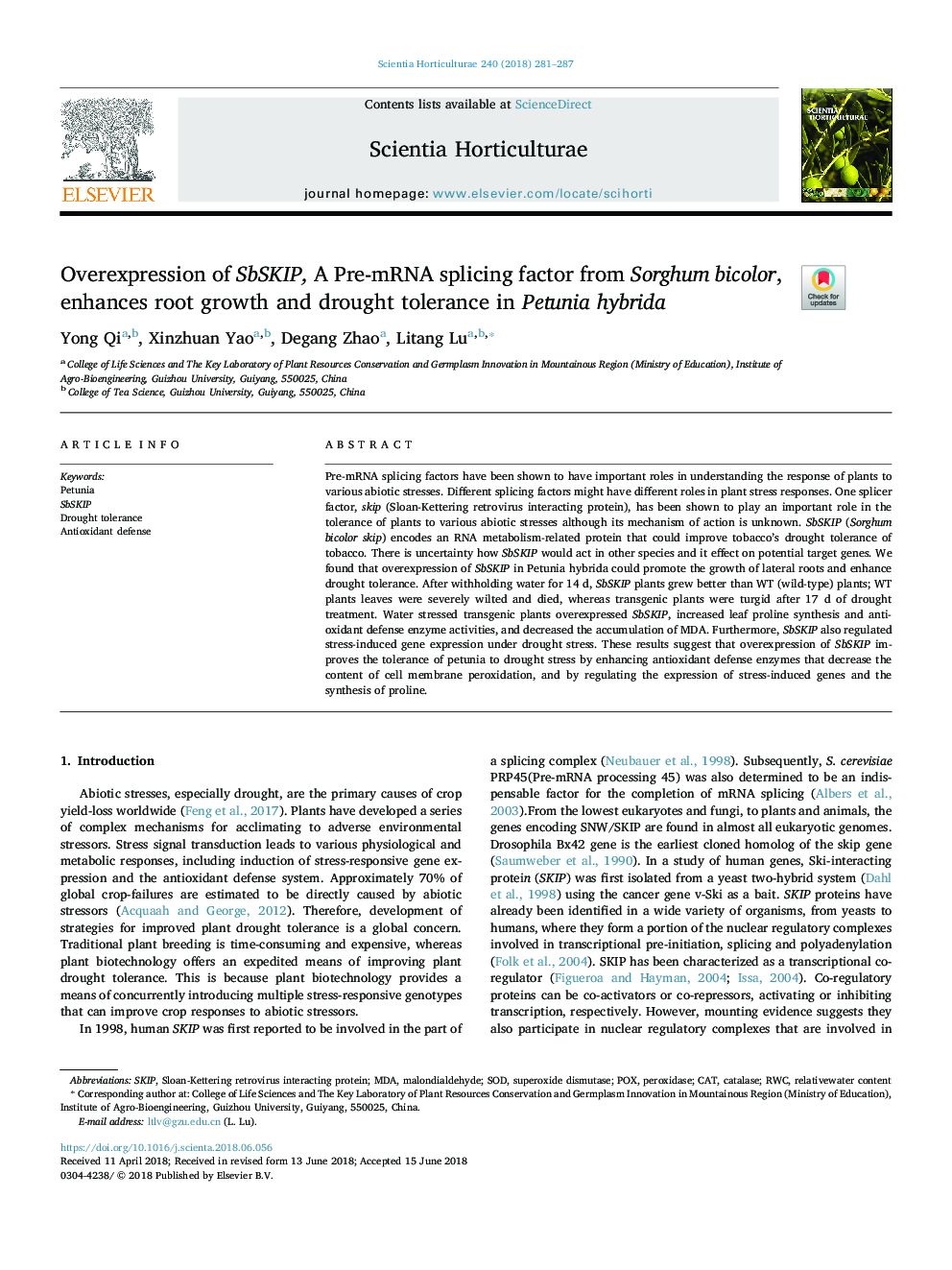| Article ID | Journal | Published Year | Pages | File Type |
|---|---|---|---|---|
| 8892398 | Scientia Horticulturae | 2018 | 7 Pages |
Abstract
Pre-mRNA splicing factors have been shown to have important roles in understanding the response of plants to various abiotic stresses. Different splicing factors might have different roles in plant stress responses. One splicer factor, skip (Sloan-Kettering retrovirus interacting protein), has been shown to play an important role in the tolerance of plants to various abiotic stresses although its mechanism of action is unknown. SbSKIP (Sorghum bicolor skip) encodes an RNA metabolism-related protein that could improve tobacco's drought tolerance of tobacco. There is uncertainty how SbSKIP would act in other species and it effect on potential target genes. We found that overexpression of SbSKIP in Petunia hybrida could promote the growth of lateral roots and enhance drought tolerance. After withholding water for 14 d, SbSKIP plants grew better than WT (wild-type) plants; WT plants leaves were severely wilted and died, whereas transgenic plants were turgid after 17 d of drought treatment. Water stressed transgenic plants overexpressed SbSKIP, increased leaf proline synthesis and antioxidant defense enzyme activities, and decreased the accumulation of MDA. Furthermore, SbSKIP also regulated stress-induced gene expression under drought stress. These results suggest that overexpression of SbSKIP improves the tolerance of petunia to drought stress by enhancing antioxidant defense enzymes that decrease the content of cell membrane peroxidation, and by regulating the expression of stress-induced genes and the synthesis of proline.
Keywords
Related Topics
Life Sciences
Agricultural and Biological Sciences
Horticulture
Authors
Yong Qi, Xinzhuan Yao, Degang Zhao, Litang Lu,
